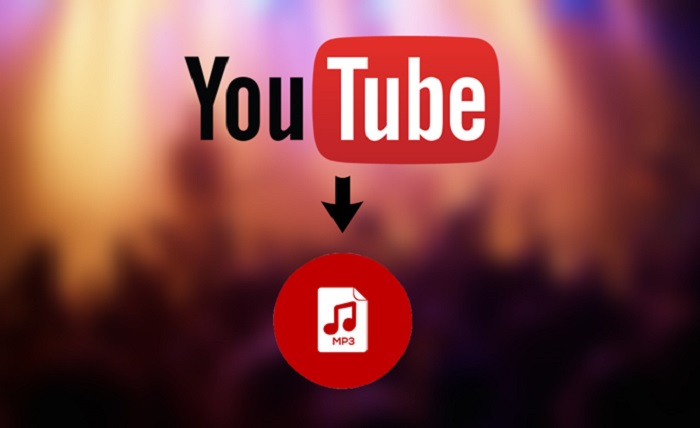The Ethics of Converting YouTube Videos to MP3 Files

Understanding the Legal and Moral Implications of YouTube-to-MP3 Conversion
YouTube has become an indispensable tool for music lovers, video enthusiasts, and content creators around the world. With over 2 billion monthly active users, the platform has revolutionized the way we consume and share media. However, despite its many advantages, YouTube also poses a challenge for users who want to download and save content for offline use. One popular solution to this problem is converting YouTube videos to MP3 files, which allows users to listen to music or other audio content on their devices without an internet connection. But is this practice legal and ethical? In this article, we’ll explore the issues surrounding YouTube-to-MP3 conversion and provide some guidance for those considering this option.
The Legality of YouTube-to-MP3 Conversion
The first question to consider when it comes to YouTube-to-MP3 conversion is whether it’s legal. Unfortunately, the answer isn’t straightforward, as the legality of this practice depends on a variety of factors.
On the one hand, YouTube’s terms of service explicitly prohibit users from downloading or copying videos from the platform. According to the terms, “You shall not download any content unless you see a ‘download’ or similar link displayed by YouTube on the service for that content.” This means that, in theory, converting YouTube videos to MP3 files would be a violation of the platform’s rules.
However, there are some exceptions to this rule. For example, if a video is licensed under a Creative Commons license or is in the public domain, it may be legal to download and use the content in certain ways. Additionally, some countries have more permissive laws when it comes to downloading copyrighted material for personal use. For example, in the United States, the doctrine of fair use allows for limited use of copyrighted material without permission, such as for educational purposes or commentary.
Despite these exceptions, it’s important to note that YouTube-to-MP3 conversion is generally considered to be a copyright infringement. When you convert a YouTube video to an MP3 file, you are essentially creating a copy of the audio content, which is likely protected by copyright law. While it’s true that some content creators may be fine with users downloading and using their work in this way, others may not be so happy. In some cases, content creators may even take legal action against users who engage in YouTube-to-MP3 conversion.
The Ethics of YouTube-to-MP3 Conversion
Even if YouTube-to-MP3 conversion is technically legal in some cases, that doesn’t necessarily mean it’s ethical. When you convert a YouTube video to an MP3 file, you’re essentially taking someone else’s work and using it for your own purposes without their permission. While some may argue that this is a victimless crime, it’s worth considering the impact that this practice can have on content creators.
For example, many YouTubers rely on ad revenue to support their channels. When users convert their videos to MP3 files, they’re essentially depriving these creators of potential income, as the ads that would normally play during the video won’t be seen or heard. Additionally, when users share these MP3 files with others, they’re essentially distributing copyrighted material without permission, which can have legal and financial consequences.
It’s also worth considering the impact that YouTube-to-MP3 conversion can have on the music industry as a whole. While it’s true that some musicians may be fine with users downloading their music for personal use, others may not be so happy. When users convert music videos to MP3 files, they’re essentially creating a digital copy of the song, which can be shared with others and potentially impact the artist’s sales. While streaming services like Spotify and Apple Music have made it easier than ever to access music legally, the fact remains that some users may still prefer to download and keep music files on their devices. When users engage in YouTube-to-MP3 conversion, they’re essentially bypassing the traditional channels of music distribution and potentially impacting the livelihoods of artists, producers, and other industry professionals.
Of course, it’s worth noting that not all YouTube-to-MP3 conversion is inherently unethical. For example, if a content creator explicitly states that they’re fine with users downloading and sharing their work in this way, then there may not be any moral issues with doing so. Additionally, some users may choose to use YouTube-to-MP3 conversion as a way to access content that they wouldn’t be able to otherwise, such as rare or obscure recordings that aren’t available on streaming services.
Conclusion
The issue of YouTube-to-MP3 conversion is a complex one that requires careful consideration of both legal and ethical factors. While it’s true that some users may engage in this practice without thinking about the consequences, it’s important to understand the impact that YouTube-to-MP3 conversion can have on content creators, the music industry, and the wider community. If you’re considering converting YouTube videos to MP3 files, it’s important to do so with a clear understanding of the potential risks and implications involved. By taking a thoughtful and informed approach, you can ensure that you’re making ethical and responsible choices when it comes to consuming and sharing digital media.



